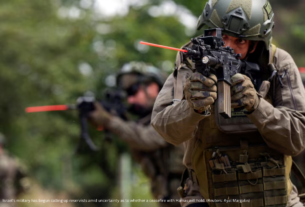Decades after Paraguay’s dictatorship under Alfredo Stroessner, families of the disappeared continue seeking justice. From 1954 to 1989, thousands were arrested, tortured, or killed during Stroessner’s rule. Despite democratic reforms, progress in uncovering the truth and holding perpetrators accountable has been slow.
Activists blame institutional hurdles and lingering political connections to the regime. “Stroessner’s shadow still looms over our justice system,” said Rosa Fernández, whose father disappeared in 1982. Many survivors and victims’ families feel abandoned as key records remain sealed or missing.
Efforts to investigate atrocities began with Paraguay’s 2008 Truth and Justice Commission, which documented over 20,000 cases of human rights violations. However, few convictions have followed. “We’re fighting against a culture of impunity that protects those responsible,” said Miguel Peralta, a human rights lawyer in Asunción.
Critics argue that limited political will has stalled justice. Lawmakers tied to Stroessner’s Colorado Party, which has dominated politics for decades, have resisted efforts to open old wounds. “Accountability threatens those who benefited from the dictatorship,” Fernández added.
Paraguay’s judiciary faces criticism for failing to prosecute high-ranking officials from the regime. While lower-level officers have faced trials, many architects of the repression live freely. Human rights organizations continue to demand a comprehensive reckoning.
Despite these challenges, survivors and activists refuse to give up. Grassroots groups hold memorials and public events to raise awareness of the dictatorship’s crimes. “We owe it to the victims to keep their stories alive,” said Marta Ruiz, who leads a group of survivors.
International organizations have supported calls for justice. The Inter-American Court of Human Rights has repeatedly ruled against Paraguay for failing to investigate enforced disappearances. These rulings push the government to act but have not brought significant change.
The lack of closure affects not only families but also Paraguay’s collective memory. “Without justice, we cannot fully heal as a society,” Ruiz emphasized. Activists argue that education about the dictatorship imustensure future generations understand its impact.
Younger activists have joined the fight in recent years, using social media to share stories and demand accountability. “The new generation is carrying on the struggle for truth,” Peralta noted. Their involvement brings hope to those who have fought for decades.
Paraguay’s path to justice remains fraught with obstacles, but the determination of a few continues to challenge a powerful legacy. The fight for answers and accountability reflects a broader struggle for democracy and human rights. AFernández said “Justice may be slow, but we will not stop until we find it.”
The shadow of Stroessner’s dictatorship continues to influence Paraguay’s institutions and society. Families of the disappeared remain steadfast in their pursuit of truth, ensuring the past is neither forgotten nor repeated. The road ahead is uncertain, but their resilience keeps the fight for justice alive.




